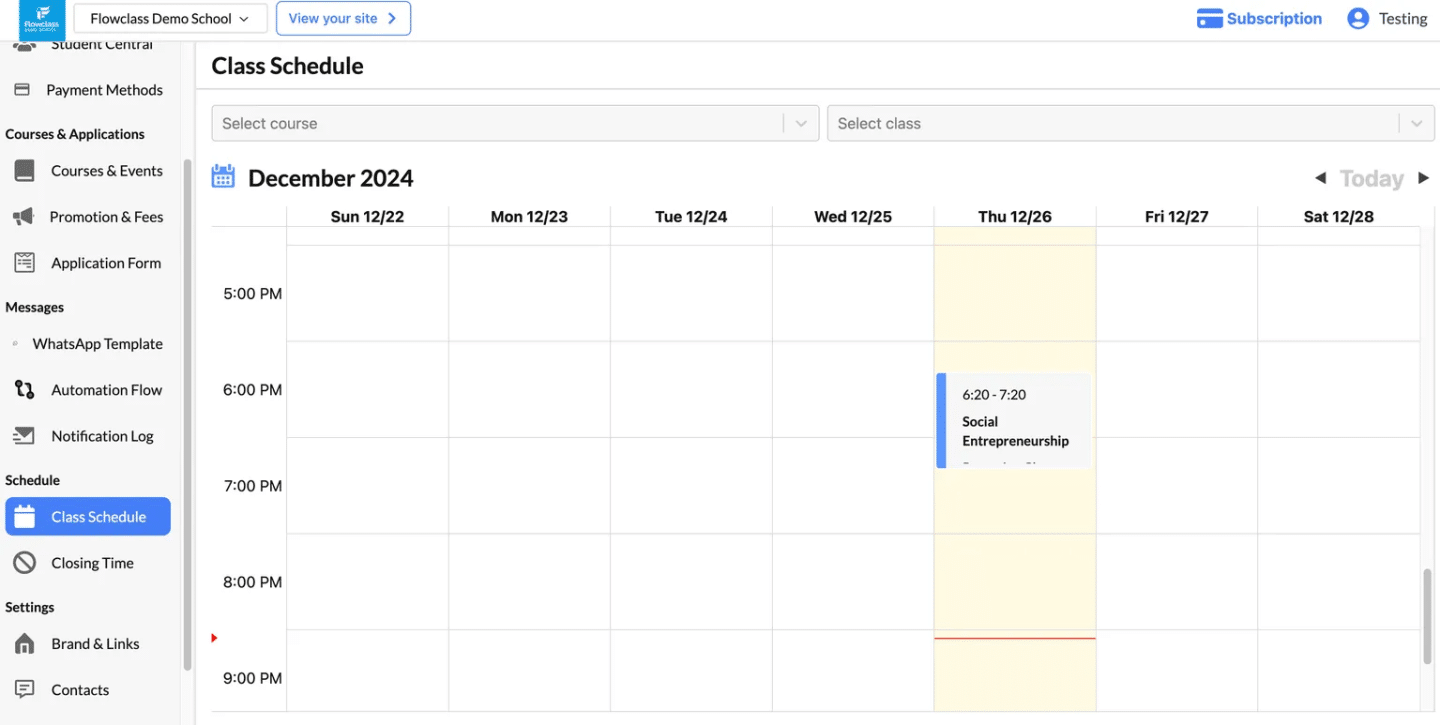Course Calendar: A Comprehensive Overview #
The Course Calendar feature is a powerful tool that provides an organized, visual representation of your course schedules.
As a centralized hub for managing and viewing class times, this feature streamlines scheduling, improves visibility for administrators, and ensures students and instructors stay on the same page.

Key Features of the Course Calendar #
1. Visual Schedule Overview #
- Displays all classes in a calendar format for easy reference.
- Organized by date and time, allowing you to see when and where classes are held.
2. Filter by Course and Class #
- Use the dropdown menus at the top to filter the calendar by specific courses or classes. Example: Quickly locate the schedule for “Social Entrepreneurship.”
3. Real-Time Updates #
- The calendar reflects any changes made to class schedules, including:
- Added or removed classes.
- Adjustments made due to Closing Time or other conflicts.
- Updates to recurring class times.
4. Interactive Design #
- Hover over or click on a class to view details such as:
- Class name (e.g., “Social Entrepreneurship”).
- Scheduled date and time (e.g., 6:20 PM – 7:20 PM on Thursday, 12/26).
How to Use the Course Calendar #
Step 1: Access the Calendar #
- Log in to your Flowclass admin dashboard.
- Navigate to the “Class Schedule” option under the Schedule section in the sidebar.
Step 2: View the Schedule #
- The calendar will display the current week by default.
- Use the arrows at the top-right corner to navigate between weeks. Example: Click the right arrow to view the following week.
Step 3: Filter Your View #
- Use the dropdown menus at the top to narrow down your calendar view:
- Course Filter: Select a specific course to display only its schedule.
- Class Filter: Choose a particular class to see its exact time slots.
- Clear filters to return to the full calendar view.
Step 4: Check Class Details #
- Hover over or click on a class in the calendar to reveal details such as:
- Class name.
- Scheduled time and duration.
- Recurring pattern (if applicable).





